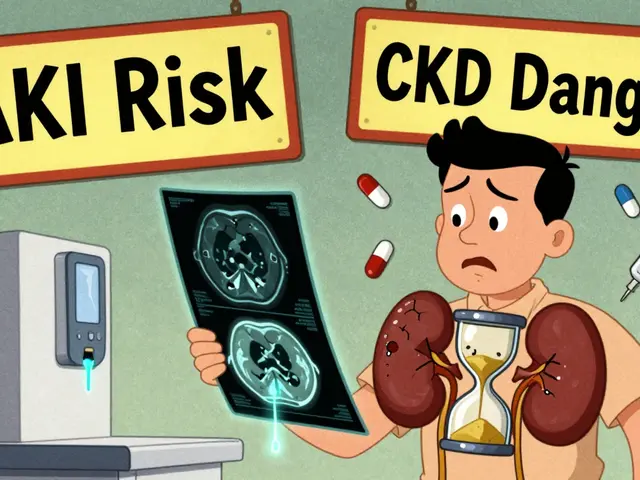Allergy & Anxiety: The Unexpected Connection
Ever notice your heart racing when your nose starts to run? That’s not just a sneeze‑triggered panic. Many people feel anxious when allergy symptoms flare up, and the two can feed each other. Understanding the link helps you stop the loop before it spirals.
Why Allergies Can Spark Anxiety
Allergens – pollen, dust, pet dander – activate your immune system. Histamine floods your body, causing itching, congestion, and breathing trouble. Those physical changes send signals to the brain that something’s wrong, which can raise stress hormones like cortisol. The result? A jittery feeling, racing thoughts, or a full‑blown anxiety attack.
Breathing difficulties are especially powerful triggers. When you can’t get enough air, your body assumes danger and flips on the fight‑or‑flight response. Even mild congestion can make you feel out of control, and that mental stress can worsen the allergy symptoms, creating a vicious cycle.
Practical Ways to Break the Cycle
1. Identify and Reduce Triggers – Keep a simple diary of when symptoms and anxiety spike. If pollen is a culprit, check the forecast and stay indoors on high‑count days. Use air purifiers and keep windows closed during peak times.
2. Take a Breathing Break – When you feel your chest tighten, try the 4‑7‑8 method: inhale for 4 seconds, hold for 7, exhale for 8. This slows the heart rate and tells your brain that you’re safe.
3. Use Over‑the‑Counter Relief Early – Antihistamines and nasal sprays work best when taken before symptoms start. A clear nose makes breathing easier, which reduces the anxiety signal.
4. Mind‑Body Practices – Gentle yoga, progressive muscle relaxation, or a short meditation can lower cortisol. Even five minutes a day can make a noticeable difference.
5. Talk to a Professional – If anxiety feels overwhelming, a therapist can teach coping tools, and a doctor can adjust your allergy plan. Sometimes a low‑dose antidepressant or an allergy shot series can calm both sides of the problem.
Remember, you don’t need to suffer in silence. Spotting the connection between allergy flare‑ups and anxiety is the first step. By managing triggers, using quick breathing tricks, and getting the right meds, you can break the loop and feel more in control.
Next time your sinuses act up, pause, breathe, and check your environment. Small changes add up, and you’ll notice fewer anxiety spikes as your body learns to stay calm despite the allergens.

How Allergic Disorders Impact Mental Health: Links, Risks, and Coping Strategies
- By : Tamsin Riverton
- Date : Aug 10 2025
Explore the science behind allergic disorders and mental health, discover key biological links, and learn practical steps to manage both physical and emotional wellbeing.




